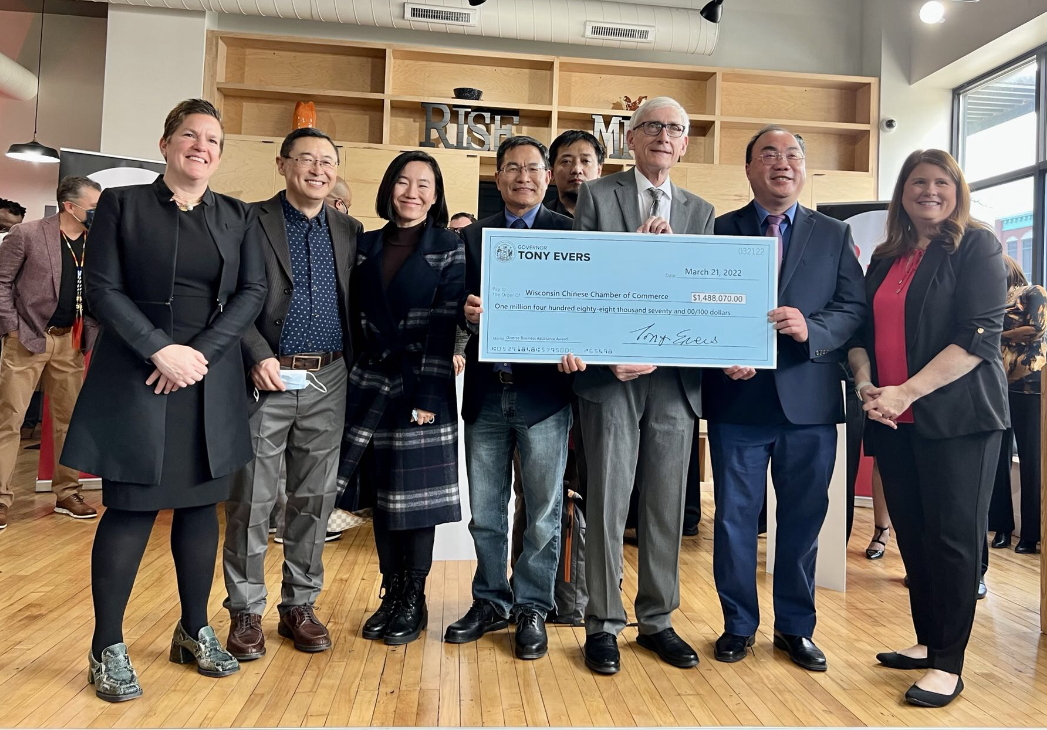Foreign Investment Efforts Can Pay Dividends for Wisconsin Businesses
When it comes to finding new markets and increasing sales, there is little question that exporting goods and services can open doors for Wisconsin companies of all sizes and all industries.
Although the primary role of the international team at WEDC thus far has been assisting Wisconsin companies with exporting, the organization is launching a new phase of its global strategy: encouraging companies worldwide to directly invest in Wisconsin.
“WEDC has done a great job on focusing on exports,” says Katy Sinnott, WEDC vice president of international business development. “We have supported companies individually as well as our regional economic development organizations. We, along with our partners, have created training programs and helped numerous companies find new markets through exporting. Those efforts are a key part of our strategy, and they will continue and grow.
“But we also are going to focus on the flipside of international business development, and that’s securing direct foreign investment in Wisconsin,” Sinnott adds. “There are many reasons why global companies seeking to expand or relocate should consider Wisconsin, and we are going to proactively make that case around the world.”
Foreign direct investment (FDI) is the investment by foreign-owned companies in Wisconsin—either by establishing new operations here, by providing additional capital to established businesses, or by acquiring Wisconsin businesses.
Since 2003, there have been 51 FDI deals in Wisconsin, representing an influx of $5.7 billion in the state’s economy. While that’s a significant figure, Sinnott believes there is ample room to grow in a state that is home to industry-leading companies fueled by specialized talent and strong collaboration between academia and the private sector. The state’s world-class research capabilities—led by the University of Wisconsin-Madison, one of the top research universities in the country—also position Wisconsin as an attractive target for investment.
“We understand the importance of FDI to the state’s economy, which is why we’re expanding our FDI program,” she says. “A coordinated FDI strategy can serve as a catalyst for expanded global engagement, sector growth and new investment and jobs throughout Wisconsin.”
One of the WEDC’s first major pushes to promote foreign direct investment in Wisconsin is a trade mission to London in February in which Governor Scott Walker, Sinnott and other key WEDC leaders will have face-to-face meetings with high-level business leaders from the United Kingdom. The state delegation also will meet with trade-related government officials, business associations, universities and industry clusters during the six-day trip.
While WEDC regularly organizes overseas trade trips, this is Wisconsin’s first trip held for the sole purpose of attracting business investment to the state. WEDC is planning similar investment attraction trips to Germany, Spain and France in April, and to China, Japan and Korea in September.
Through its FDI efforts, WEDC is focusing on attracting companies that best fit into Wisconsin’s growth sectors, such as advanced manufacturing including energy, power and controls and aviation/aerospace, water technology and clean technology, agriculture, biotech and medical devices, and food processing and food processing equipment.
Rather than focusing generally on those sectors, WEDC will hone in on the research and development (R&D) efforts taking place in each area as it looks for FDI opportunities. Emphasizing Wisconsin’s highly developed R&D culture in those growth sectors will set Wisconsin apart from other states that may have similar strength in those sectors, Sinnott says.
“For example, a foreign company that operates in the advanced manufacturing arena may want to come to North America, but they need to develop their product for this market,” she says. “Why would they pick Wisconsin over any other state? We believe they’ll find the expertise needed to customize or further develop their product for North America in Wisconsin’s strong R&D culture. We’ll emphasize our strengths, but then use R&D as a key differentiator to tip the scales in Wisconsin’s favor.”
(January 2015)






